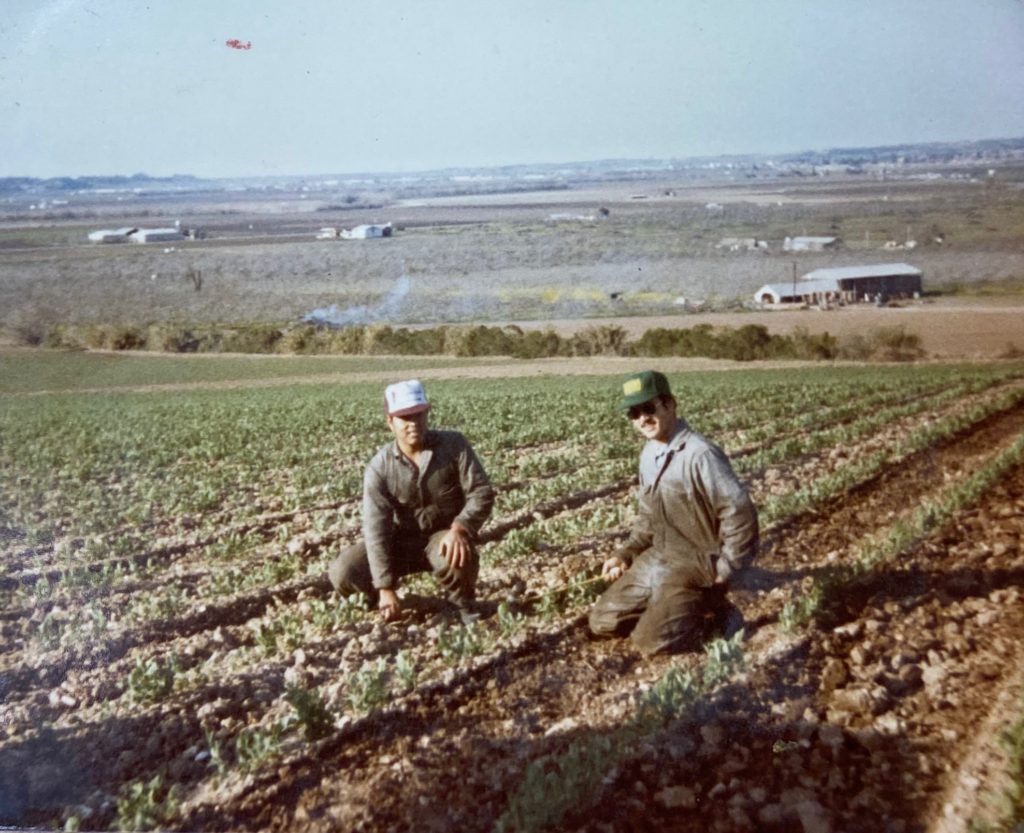Lakeside Organic Gardens celebrates 25th anniversary
Lakeside Organic Gardens celebrates 25th anniversary
If ever there was a kid destined to be a farmer, it is Dick Peixoto, owner and founder of Watsonville, CA-based Lakeside Organic Gardens.
Peixoto grew up in Watsonville and remembers riding around visiting farms as an eight-year-old as his father sold pesticides to local farmers. It was an ironic start for what would become one of the area’s largest organic growers. “When I was in eighth grade, I grew one acre of cherry tomatoes that my classmates helped me harvest because we had to pick them all the time. We loaded them in a 1956 Chevy pickup and sold them to Frank Capurro & Son (in Moss Landing).”
By the time he was a senior at Watsonville High School in 1975, Peixoto was growing green beans, squash and picking cucumber for Capurro on a 40-acre farm. The young farmer had no doubt that he was following his career path. “I got a job at the local grocery story and retired from the grocery business at 17,” he quipped, indicating that his career lied on the supply rather than buy side of the equation.
By the time he was in his mid-20s, Peixoto was a veteran farmer growing several crops for Dole. In the mid-‘80s, Salyer-American launched its operation and Peixoto remembers being their first lettuce grower. Over the next decade, Dick Peixoto Farming added to its production amassing an operation of about 2500 acres. In 1995, he grew his first organic crop. It was early in that same year that El Nino conditions resulted in significant rain with the Pajaro River flooding much of the valley where Peixoto grew his crops. That was a seminal moment for the still under-40-year-old grower.
“There were big losses that year and I remember contemplating what the future will look like for agriculture,” he said. “That was a few years after the alar scare hit apples, and I figured the future would include some type of pesticide-free farming.”
He studied the concept of organic farming and learned about the transition period. He decided to dip his toes into the sector and admits freely that it was mainly a business decision as he noted the premium price organic produce was garnering in the marketplace. But Peixoto also liked the sustainability aspect and the notion that organic farming methods improve rather than deplete the soil. Today, that is still a driving force. “I look at the land I have farmed over the last 25 years and I know the soil is better than when I started. That’s not the case with a lot of the conventional farms around here.”
He started with 50 acres and learned how to grow organic from the ground up. He named his operation Lakeside Organic Gardens as somewhat of ode to the ribbing he was receiving from fellow growers. Peixoto explained that his 50-acre organic farm had many different crops with three rows of one commodity and four of another. Local farmers thought it looked like a garden. A decade later, a marketing guy told Peixoto the moniker was golden, and he should never change the “garden perception.”
During his first few years of organic farming, Peixoto made the same mistakes as everyone else. He took land that was not being farmed and grew organic crops to avoid the three-year transition period from conventional to organic. But that land wasn’t being farmed because it wasn’t prime land. He changed his philosophy and increased his production.
The breakthrough moment for Peixoto came in 1999 when he cold-called the local Whole Foods buyer Edmund La Macchia and asked him if he would tour the Lakeside Organic Gardens ranch. That call led to a longtime collaboration in which Lakeside grew a lot of fresh produce crops that Whole Foods bought. It also led to the expansion to desert growing to produce year-round production, which is what Whole Foods wanted from its suppliers.
The rest, as they say, is history. Over the past two decades, Lakeside has grown at a steady clip swapping out land for better ground and better production along the way. Today, the operation double crops 2,000 acres in the Pajaro Valley and grows another 1200 acres for winter production in the Imperial Valley. Peixoto’s expansion strategy involves finding great land near schools where conventional farming can’t exist yet his organic production thrives. And it also gives the next generation a positive, birds eye view of agriculture.
He has enjoyed double digit sales growth every year in business and he believes there is no ceiling for the organic category. Consumers want it, it’s a sustainable growing method and he believes organic produce is better tasting. He predicted that in less than a decade, maybe six to eight years, organic produce sales will eclipse conventional in retail produce departments. Peixoto welcomes all farmers to the organic category but believes it works best for those who are committed to the philosophy. “If you only think of it as a profit center and you get in and out of it, you won’t do it right. We are committed. We farm the soil, and the soil grows the crop.”
Back to All Media

